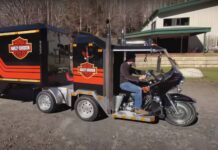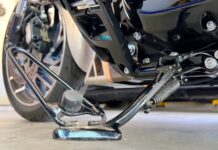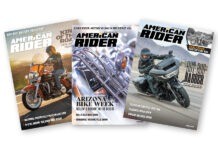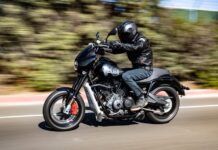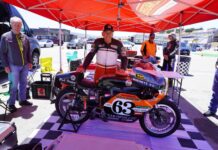Physically, number plates all weigh about the same. A quarter of a pound, give or take.
But one adorned with a number “1” is heavier. Much heavier. Pick ’em both up and they’ll have the same heft in your hand. But they are different animals altogether.
As a racer, winning a National Championship for the first time means a whole lot of things. For one, you earned the right to carry Number One by scoring more points than your competition during the season. You may have won more races than anybody else or been more consistent over the year by better managing your off-days. But either way, you were the best.
You also get to throw a leg over a motorcycle carrying the Number One plate the following season. This will be a confirmation, an affirmation, of all your hard work and dedication, as well as the risks you’ve taken over the course of your lifetime leading up to that moment.
Competing with the Number One on your motorcycle truly is a dream come true, a culmination of years of sacrifice by family, friends and supporters. With the Number One plate on your motorcycle your confidence soars, your chest puffs out a little, and you feel a little taller. You say to yourself, “I am the man!”
But what most champions don’t realize, especially after their first championship season, is that carrying that Number One plate comes at a price that they may not have expected to pay.
They didn’t expect to instantly become an official spokesperson for the series at each event for series sponsors and/or event sponsors, many of which can conflict with their own sponsors.
The time they’d spent preparing for races in the past has pretty much vanished due to the responsibilities or expectations of others. These include being available to accommodate seemingly every conceivable media request for the series, for each event and for their own sponsors.
Additionally, when issues come up at events, and they do on a continual basis (that being the nature of racing and events), fellow competitors look to The Champ to address those issues on their behalf, whether The Champ is an elected rider representative or not.
People you have known casually or not at all are now your best friends and expect you to accommodate their needs, wants and desires. Requests for free tickets from these people – and even from friends and family you hold dear and consider important – quadruple.
And then there’s the pressure of expectations … to win the title again, to ride at the front, to podium, and to win. Fans expect it. The paddock expects it. And you yourself probably expect it, too.
Over the 65 years of American Flat Track history, only 26 men have earned the right to carry the Number One plate. Champions from each decade faced a different set of challenges, on and off the racetrack. Today, it would seem that reigning AFT Twins champion Jared Mees has a firm handle on the weight of additional requirements, as he’s been dominant over the last two seasons.
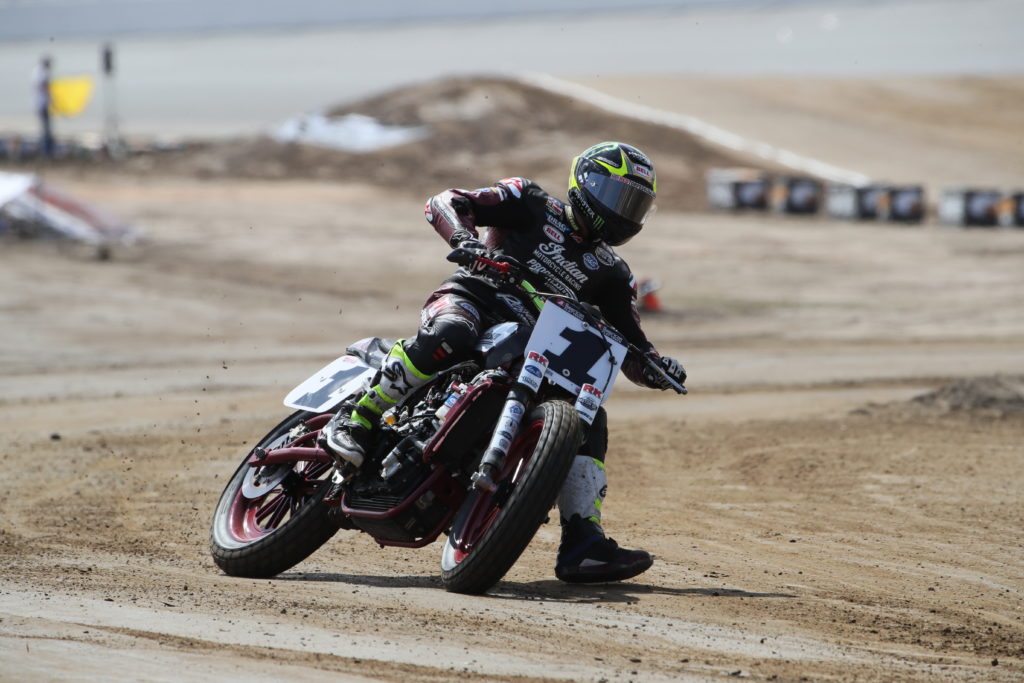
But does he?
Mees has dominated the AFT Twins division over the last two seasons, winning 20 of 36 races. His dominance has come aboard the effective and purpose-built Indian FTR750 and rivals that of Scott Parker’s best years on the Harley-Davidson XR750 – truly a legendary motorcycle. Parker earned nine Grand National Championships over the years.
But Mees is off to a slow start in 2019. He hit the deck twice at the season-opening Daytona TT (a race he won the previous two years) and DNF with a mechanical. He was caught and passed by a resurgent Brandon Robinson riding a privateer Indian at the Atlanta Short Track – where Mees had won the previous two seasons (he was DQd in ’18 for a chemically altered tire).
So what changed? I asked him recently why it’s been difficult for him to pick up where he left off.
“Guys are getting better,” he said, giving me the typical PR pap riders are trained to give in media interviews. “The top guys are training more to step up to my level, everybody is improving, etc.”
There is a lot of truth in Mees’ pap. Last year in Texas, for instance, Mees caught, passed and ran away from Briar Bauman, who was riding a Kawasaki. This year, Mees was involved in a race-long brawl with Indian teammate Bauman, trading the lead back and forth for 20 laps and only breaking away in the race’s latter stages. That’s something we have not often seen.
The weight of Number One gets heavier with change, too. So what’s changed recently? First, the Daytona TT went from all dirt to half dirt, half Daytona Tri-Oval. Many riders were skeptical, Mees included, and the uncertainty probably played a part in Mees’ result there.
Secondly, Bauman’s results since switching to an Indian halfway through 2018, coupled with his victory at the Daytona TT, a third in Atlanta and the aforementioned hard-fought second to Mees in Texas, means that Mees has much stiffer competition this year.
Then there are the 2019 rule changes, which allow more displacement and throttle body size for production-based engines, including Bryan Smith’s Crosley Howerton Kawasaki, the factory Harley-Davidson XGs and Estenson Yamahas. We won’t know how much of a difference these changes will make until we hit the Miles of Springfield and Lexington at rounds seven and eight. But they and the uncertainty they bring may have an effect mentally on Mees and his team considering their success prior to the changes.
Looking at those 26 champions in 65 years, consider Scott Parker’s nine championships in 11 years. If the plate was heavy then, and it was, the guy was a true power-lifter. Still, his titles, like my own, were during an era where nobody wanted change, and there really wasn’t much of it. If Mees were to win his third title in a row this season, his sixth in eight years, he will have done so during an era where the Number One plate was arguably the heaviest it’s been in history.
I asked Mees what he thought was the best part of carrying the Number One plate. “There isn’t a best part,” he said. “It’s heavy. It’s harder to keep it than it was to win it the first time.”
’Nuff said.



